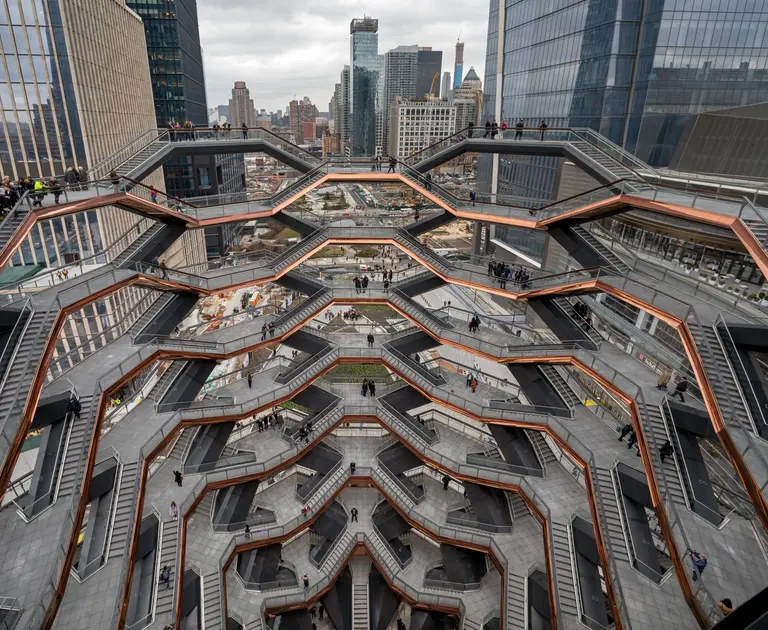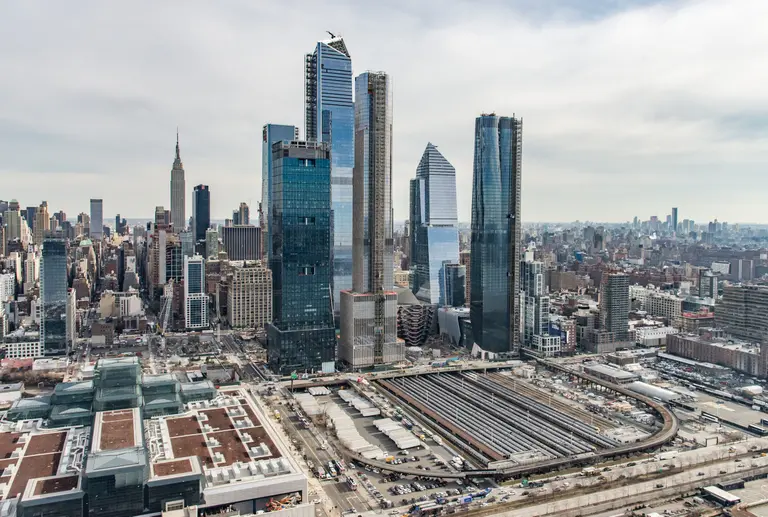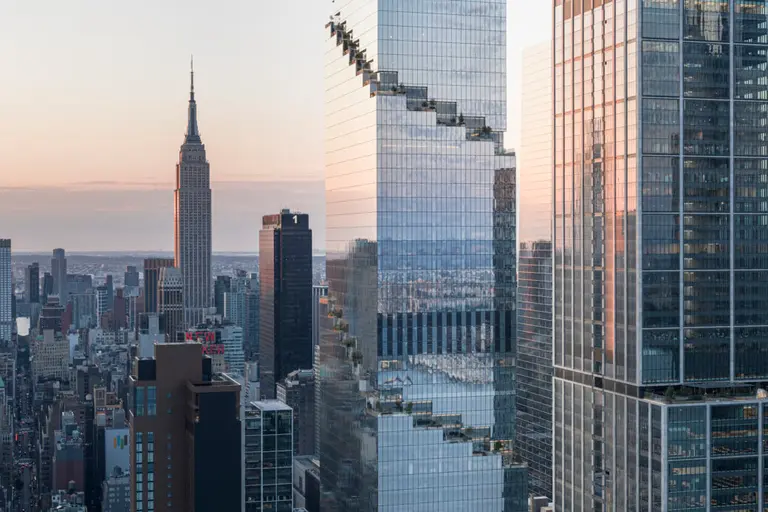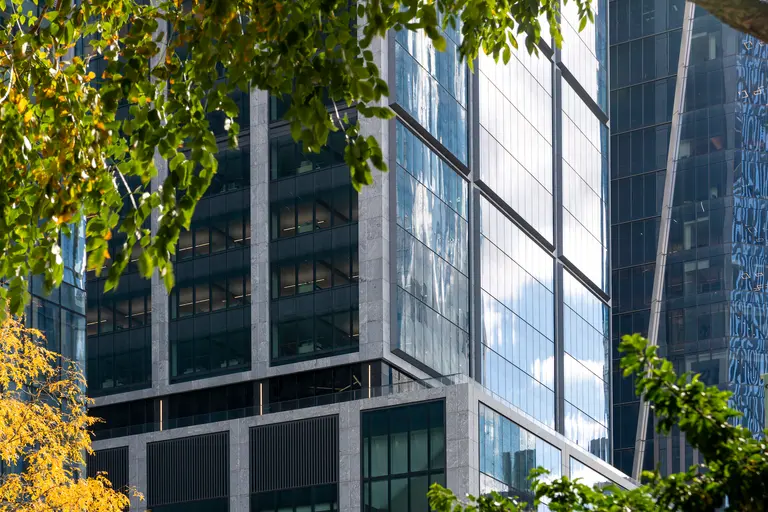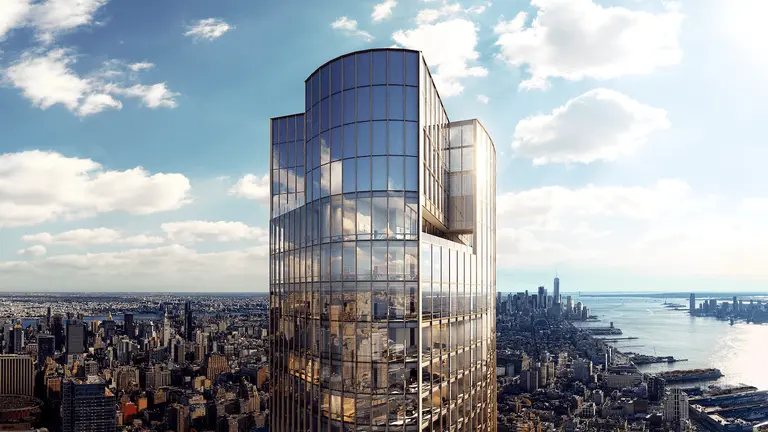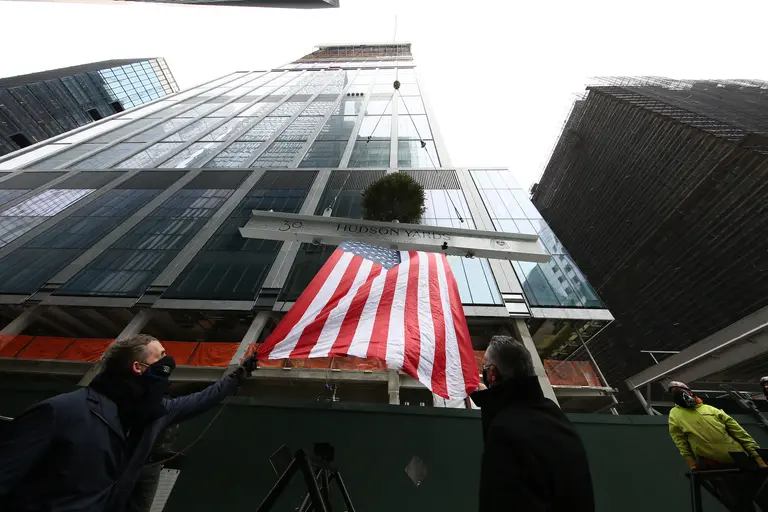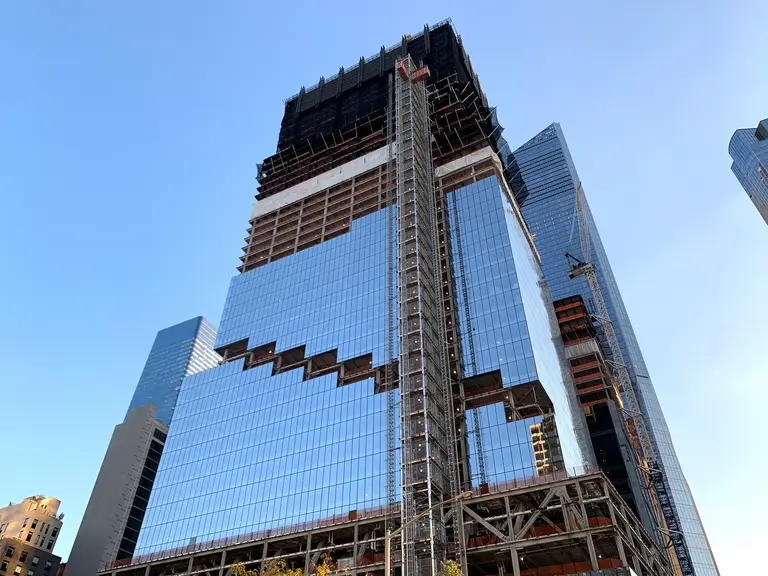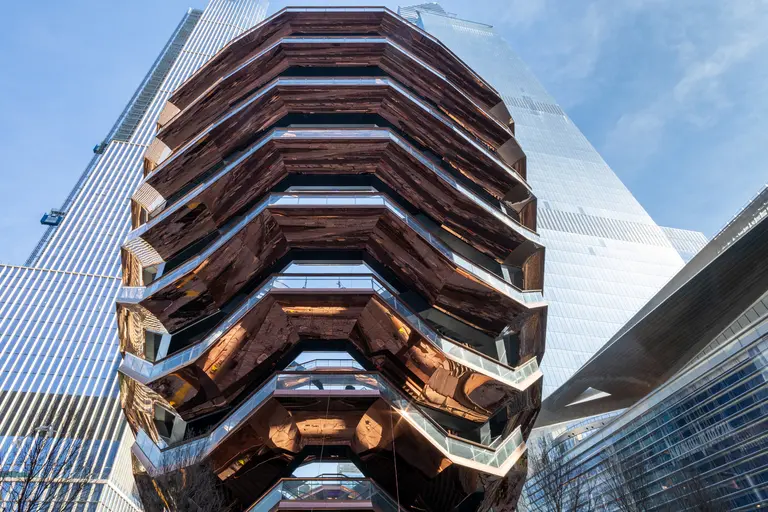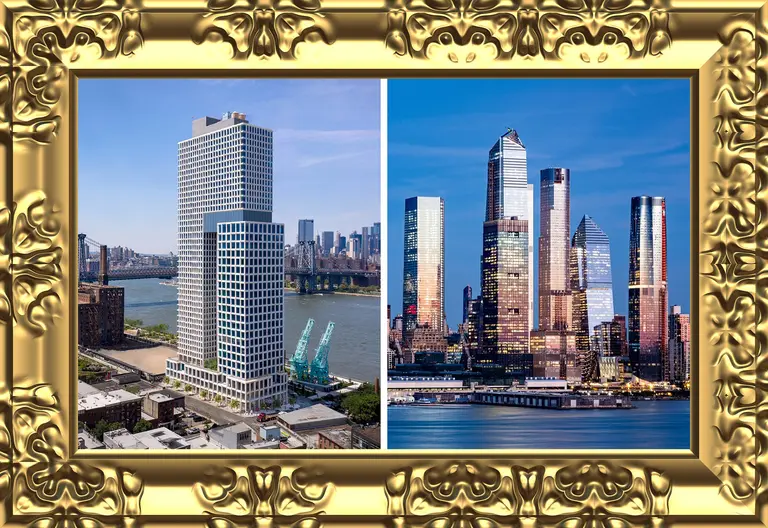Hudson Yards got bigger tax breaks than the ones promised to Amazon

Rendering courtesy of Related/Oxford.
The $20 billion, 28-acre Hudson Yards megaproject has been in the news recently as its official March 15 grand opening approaches. The New York Times reports that the nation’s largest residential development has gotten more than a little financial help from the city government to get there. In fact, public records–and a recent study by the New School–reveal that the development has received nearly $6 billion in the form of tax breaks and additional government assistance, twice the controversial $3 billion in incentives held out to Amazon to entice the retail tech giant to bring its second headquarters to Queens.
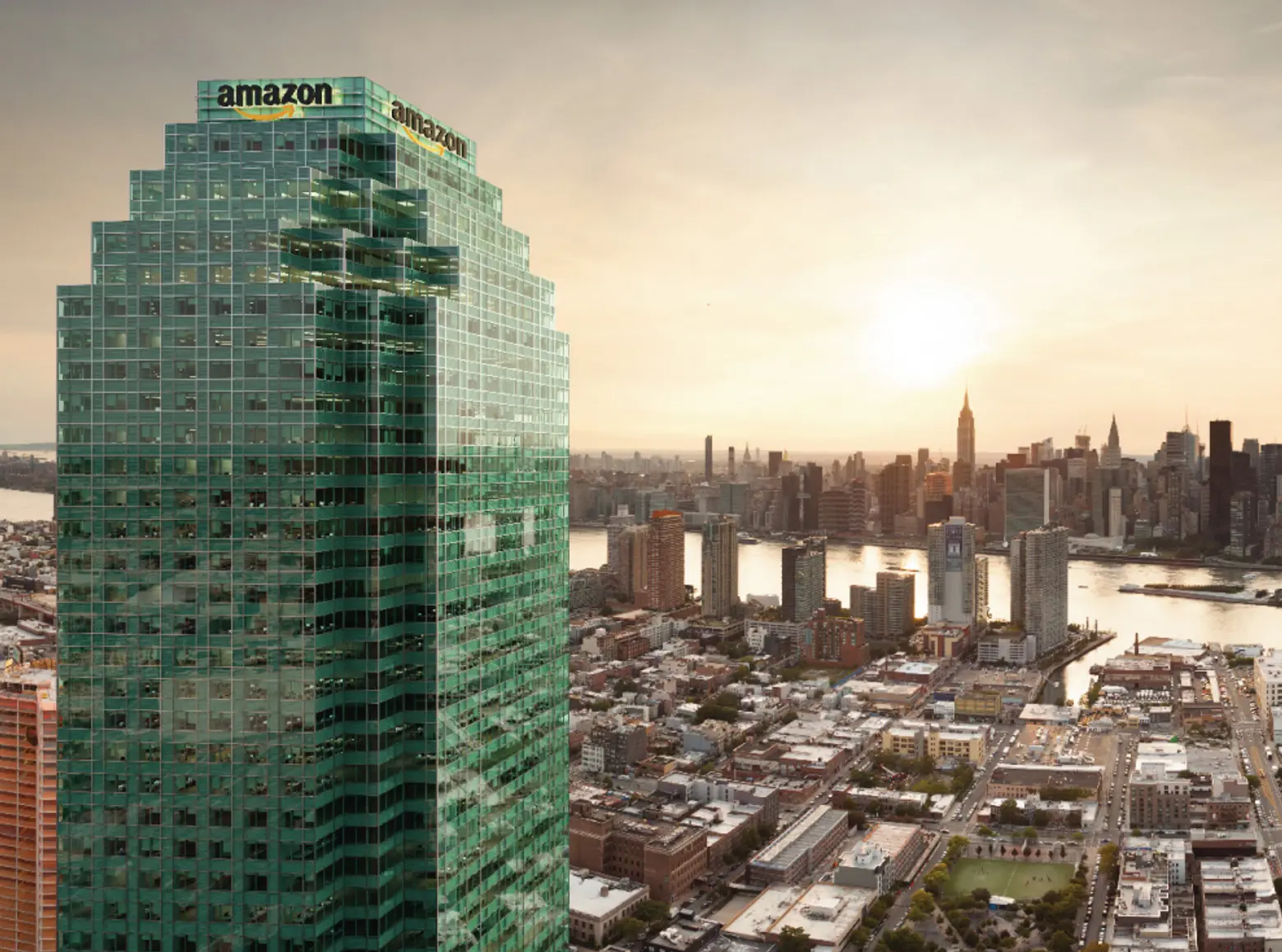
Where did $6 billion in taxpayer dollars go? Included in that tally were the $2.4 billion spent by the city to bring the 7 subway line to Hudson Yards; $1.2 billion was set aside for four acres of green space within Hudson Yards. The City Council kicked in $359 million to shore up interest payments on bonds when the development fell short of its revenue projections.
The point to be made is that the world’s most successful real estate developers–In this case Related Companies and Oxford Properties Group–are among the biggest beneficiaries of generous government tax breaks, meant to encourage development.
Of the incentives given to the Hudson Yards project, defenders say they’ll reap an enormous benefit to the city in the form of thousands of new jobs created. The subway extension is definitely a boon, and who can argue with parks and improvements at what was for years a jumble of old factories, tenements and a stretch of rail yards once known as “Death Avenue.”

But the city was lacking a subway stop on the far west side before the wealthy developers made it happen, and the counter-argument in both the case of Amazon and Hudson Yards is that big businesses with big profits at stake should pay their own way rather than getting government incentives–particularly tax breaks–sorely needed elsewhere.
The New School’s recent analysis, headed by Bridget Fisher and Flávia Leite, focuses on a particularly fortuitous property tax break that developers within the Hudson Yards area benefitted from which has cost the city more than $1 billion so far. This incentive can mean as much as a 40 percent discount for future developers in the area for as long as 20 years.
Additional incentives could be forthcoming for companies like mega-money manager BlackRock, with $5.98 trillion under management, who can get $25 million in state tax credits in exchange for adding 700 jobs at Hudson Yards. L’Oreal USA is in the running for $5.5 million of the same tax credit, and WarnerMedia could get $14 million.
Mayor Bill de Blasio has been a supporter of the Hudson Yards project–and of the Amazon deal–but appears to be rethinking the necessity of property tax breaks for big corporations since the recent Amazon debacle. He said in a statement that though Hudson Yards will benefit the city, “We’ve moved away from providing discretionary incentives like the prior administration. I believe state and local economic development programs need to be re-evaluated and updated.”
The city may approach the subject differently in a post-Amazon New York. Council Member Brad Lander of Brooklyn, a Democrat and founder of the Council’s Progressive Caucus and an opponent of the Amazon deal said he understands the benefits of subway expansion and new parks but, “We’re giving away tax breaks without paying close attention to what’s a good deal or not a good deal.”
James Parrott, director of economic and fiscal policies at the Center for New York City Affairs at the New School, expressed a similar sentiment: “We are still giving tax breaks to a development that enriches billionaire developers and high-rise commercial and residential development that is not benefiting ordinary people in New York.”
[Via NYT]
RELATED:
